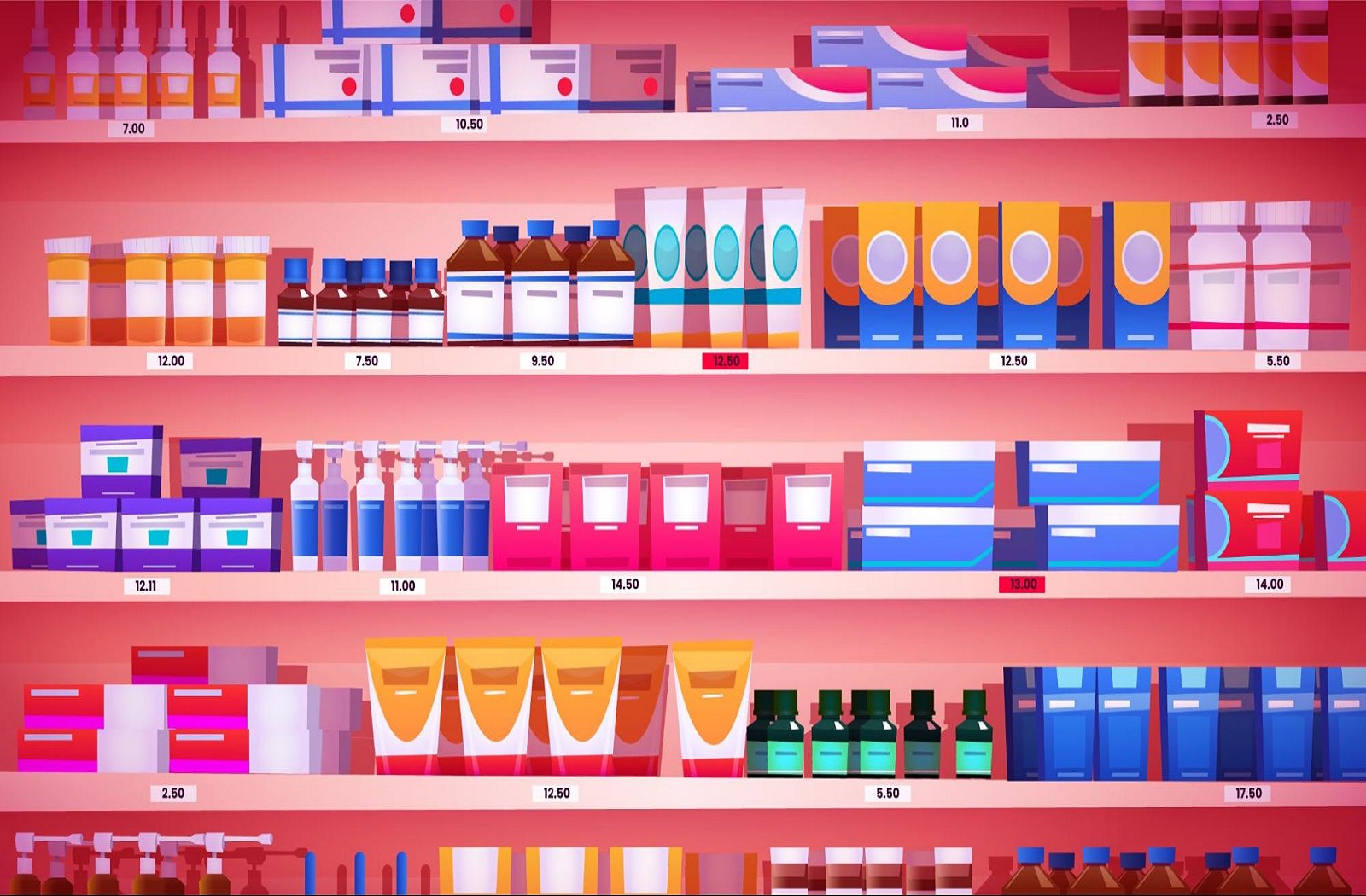Blog Details

- August 02, 2023
STORAGE IN PHARMACEUTICAL INDUSTRY
Drug storage is among the Pharma franchise most important responsibilities. Proper storage of pharmaceutical products is important to ensure the identity,strength,quality and purity of the products. The conditions under which pharmaceutical products are manufactured and stored have a major impact on their quality. High temperature and relative humidity are the most important factors involved in drug degradation. Appropriate conditions of light,ventilation,temperature and security should be ensured.Most importantly extra attention needs to be given to no direct sunlight and UV rays contact.
Different pharmaceutical product storage temperature on the basis of stability studies as given below:
Freezer: A place in which the temperature is maintained thermostatically between - 25ºC and 10ºC (-13 ºF and -14 ºF).
Cold: Any temperature not exceeding 8ºC (46 ºF). A refrigerator is a cold place in which the temperature is maintained thermostatically between 2ºC and 8ºC.
Cool: Any temperature between 8 ºC and 15 ºC. Any pharmaceutical products for which storage in a cool place directed may, alternatively, be stored in a refrigerator, unless otherwise specified in the individual monograph.
Storage Condition on Label
It is mandatory for the manufacturer to mention storage conditions on the packaging and all drugs should be stored accordingly. The label should also specify if any special conditions need to be taken care of.
Storage of Tablet
- Store in a cool, protected area from light and moisture.
- Store in a cool and dark place, protected from light and moisture.
- Keep in a dry dark place.
- Store in cool dry and dark places.
Storage of Capsule
- Store in a cool and dry place, protected from light.
Storage of Emulsion
- An emulsion should be stored in an airtight container, protected from light, high temperature or freezing.
- The emulsions are required to be in a cool place.
Storage of Suspension
- Suspension should be stored in a cool place but not be kept in a refrigerator.
- Freezing at a very low temperature should be avoided which may lead to aggregation of the suspended particles.
- Store in a cool and dry place, to protect from heat and light.
- Store in a cool and dark place, protected from direct sunlight.
- Keep in a dry place at a temperature not exceeding 30 ºC. keep the bottle tightly closed.
- Store below 25 ºC, protected from moisture.
- Store at a temperature not exceeding 30 ºC, to protect from light.
Storage of Ointment
- Ointment should be stored in a well closed container so as to prevent the loss of volatile constituents.
- The ointment should be protected from high temperature or direct sunlight.
- Keep in a cool place.
- Storage of Paste
- The paste should be stored in a well closed container and in a cool place so as to prevent evaporation of moisture present.
Storage of syrup
- The syrup should be stored in a well closed and stopper bottle in a cool dark place.
- The syrup should be stored at a temperature not exceeding 25 ºC.
- Store in cool, dry and dark places.
- Store in a cool and dry place, protected from light.
- Store in a cool place, protected from direct sunlight.
Storage of Oral Drop
- Store at a temperature not exceeding 30 ºC.
- Store in a cool, dry place and protected from light.
- Store at a temperature not exceeding 30 ºC, protect from direct sunlight.
- Keep in a dry place, dark place.
- Store in a dry place, away from light.
Storage of injection
- Store below 30 ºC, protected from light.
- Store below 25 ºC, protected from light.
Pharmaceutical producers have known for a long time how important a reliable, effective, and temperature-controlled supply chain is. It has been necessary for the regulatory authorities to adopt regulations or legislation in several sectors, most notably in the storage of pharmaceutical products, to ensure adherence to temperature limitations. To prevent temperature extremes, the storage environment must be temperature-mapped and equipped with the necessary controls. To lessen the effects of environmental elements, hospitals and neighborhood pharmacies must maintain suitable storage conditions. When kept in pharmacies with good storage facilities, pharmaceutical goods were proven to preserve their efficacy. Because of this, the regulatory bodies and pharmaceutical organizations should emphasize how crucial it is to maintain proper storage conditions at hospital and neighborhood pharmacies.


